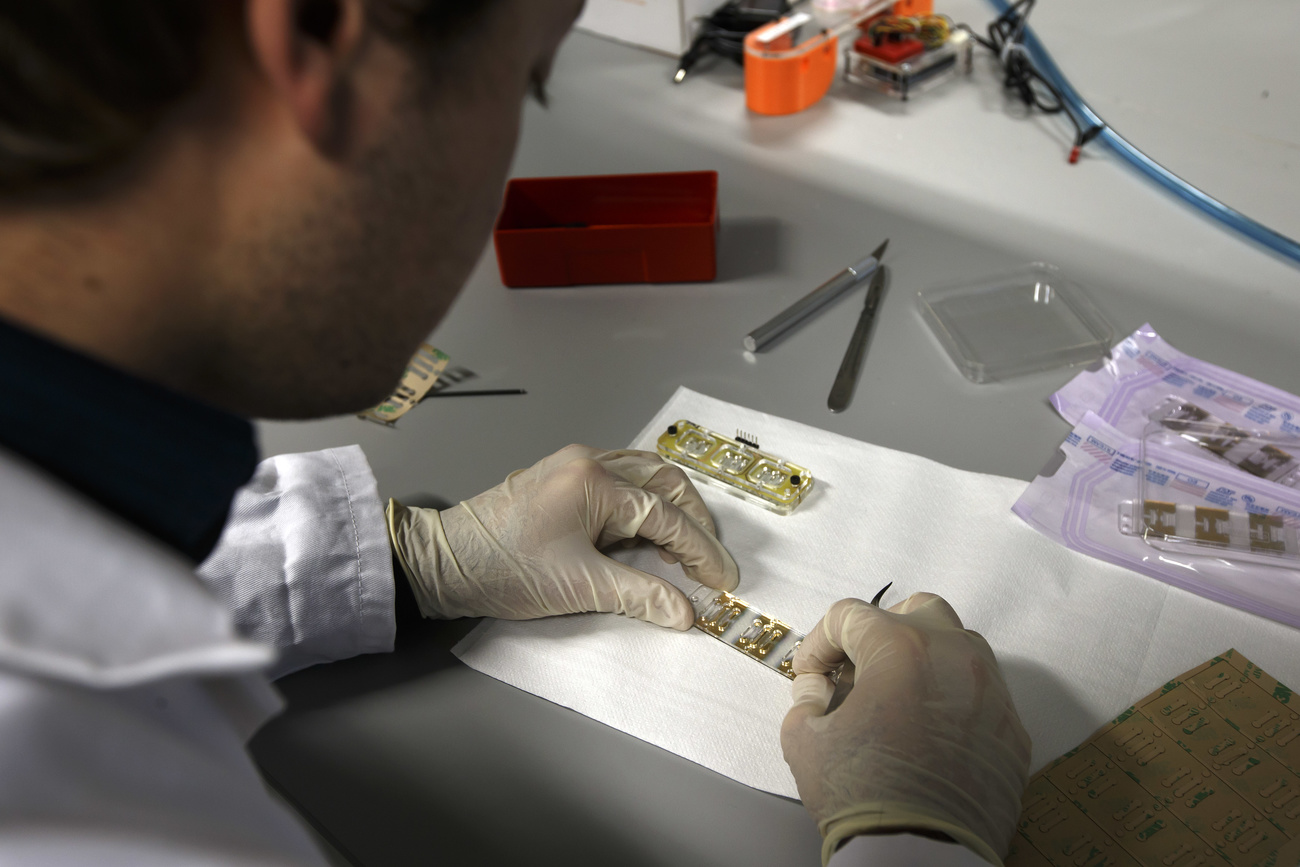
Swiss unis develop population density tool to help humanitarian work

Researchers from Switzerland’s top two universities have developed a precision AI tool to estimate population density in countries where the International Committee of the Red Cross (ICRC) is active.
The tool was developed to help the ICRC in regions which only have out-of-date or fast-changing census statistics, the Swiss Federal Technology Institute Lausanne (EPFL) wrote on MondayExternal link.
EPFL researchers, along with scientists from the Federal Technology Institute ETH Zurich and Qatar’s Bin Khalifa University, thus worked on an artificial intelligence tool which can estimate population density and help reconstruction or crisis management efforts.
The programme – as outlined in the Scientific ReportsExternal link journal – uses data gleaned via remote sensing concerning factors like building density and size, road network density, and levels of lighting at night.

More
Anticipating future technologies for humanity’s well-being
The tool, called Pomelo, was tested in several African countries where the ICRC works, such as Tanzania, Zambia, and Mozambique. It has been able to precisely estimate population density in areas as small as a hectare.
“There are a few other artificial-intelligence-based programs out there, but they all need a precise census count to start learning, which they then refine with other data. We only need an estimate of the population at the coarse regional level,” said Prof. Devis Tuia, head of EPFL’s Environmental Computational Science and Earth Observation Laboratory.
The researchers are planning to release an easy-to-use version of the software for non-experts by April 2023.

In compliance with the JTI standards
More: SWI swissinfo.ch certified by the Journalism Trust Initiative






























You can find an overview of ongoing debates with our journalists here . Please join us!
If you want to start a conversation about a topic raised in this article or want to report factual errors, email us at english@swissinfo.ch.